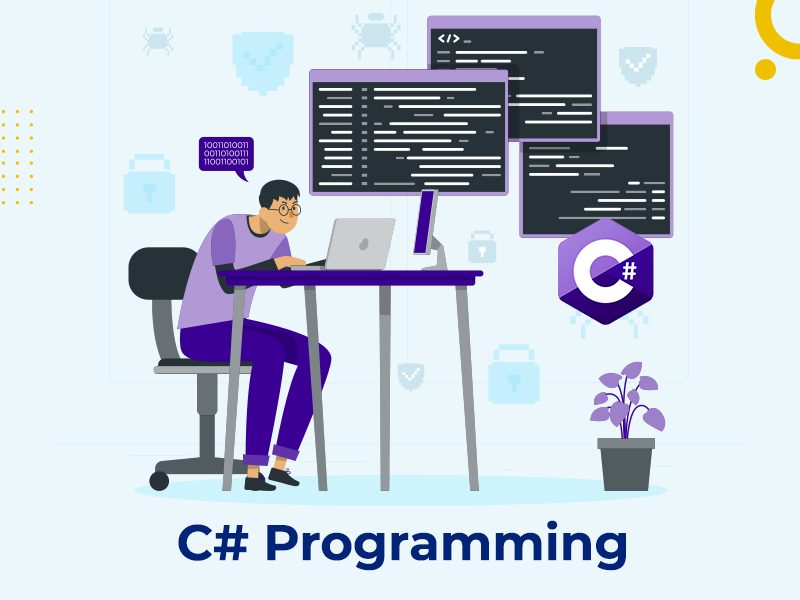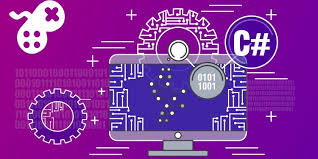Introduction
Psychological principles are the study of our thoughts, feelings, and behavior. Social psychologists, behavioral psychologists, or clinical psychologists are often studied to determine how these psychological principles affect us. The main principle of psychology is that it is all about behavior. All behavior can be traced back to thoughts and feelings, which go back to the environment we live in. The atmosphere in which we live includes social influences like family, friends, media or school; cultural influences like religion or norms; physical factors like temperature, individual factors like personality traits, attitudes, etc.

We are all unique in our way of thinking. This makes us different from one another, and countless studies have shown how this can help students. Psychology principles can help improve the way students learn, but only if they are applied correctly.
How Can Principles of Psychology Help Students learning C#?
The principles of psychology can be applied to various aspects of a student’s life, including their education. Classes that emphasize psychology principles have been shown to improve grades in higher academic levels, including college courses, graduate programs, and programming courses. However, C# tutorial educators need to keep in mind that when applying these principles, they should find the right balance between “too little” and “too much” information given to their students, as people learn at different speeds.
Psychology is an essential part of programming. The principles of psychology are used to build a better understanding of the human mind. This knowledge is then applied to programming by designing simple and intuitive interfaces, where users can quickly find what they are looking for. A well-designed interface reduces the number of errors made by humans, allowing computers to process more information. This helps save time and resources that would otherwise be wasted on fixing errors made by humans. It also makes coding learning more efficient since you can spend less time searching for ideas and more time coding.
Four Principles of Psychology You Can Use to Get Better at C#
- Growth Mindset
- Prior Knowledge
- Self Regulations
- Practice
- Growth Mindset
Growth mindsets, in which the assumption is that intelligence is malleable and success is a function of effort level, are associated with learners’ persistence regardless of setbacks. Bringing growth versus fixed mindsets to the forefront of students is essential, and it’s a great start. Students can then use this knowledge to follow certain principles to develop new skills.
- Prior Knowledge
Researchers have found that prior knowledge contributes both to conceptual growth and change among students. The development of conceptual understanding adds to the existing cognitive experience, and the correction of misconceptions or errors in existing knowledge is conceptual change. So reading up on C# before starting a tutorial will allow you to grasp the concept quicker.
Before the start of each unit, a formative assessment is necessary to determine the student’s baseline level of knowledge. Then, as a learner, you can assess how much you know about the subject or the fundamentals and decide if you need to gain more understanding to move forward or not. By incorporating background knowledge and drawing connections between units during the course, students can integrate background knowledge effectively.
- Self Regulations
Direct instruction, behavioral modeling, and classroom organization can help students develop self-regulation skills, such as attention, organization, self-control, planning, and memory strategies. For example, if you are learning oops concepts in C#, Inheritance in C# and other critical features through online classes, you can self-imposed rules on yourself to get better.
Self-imposed rules can be anything that helps you get better. These rules will help you in planning, memorizing, and being proficient.
- Practice
Researchers have developed empirically based strategies that can better enable students to encode knowledge into long-term memory. The examples in this principle can inform instruction in the memory unit and throughout the course. In addition, instructors can help students gain knowledge, skills and confidence by making frequent formative assessments such as practice exercises, activities and sample tests.
Online C# tutorials offer exercises, relevant articles, and video tutorials to help learners practice more. You can also follow youtube tutorials and pieces of training provided by various platforms. Distributing practice activities among students will increase students’ ability to retrieve information over time.
Conclusion
In addition to being useful for instructors, these principles can be used in psychology curriculums as examples of how applied psychology can be used in real-world situations. Students will also be able to build skills to learn more effectively in all of their classes due to these principles. Other psychological principles can also be incorporated into the learning system. Even though there is a debate about the top 20 principles of psychology, without any doubt, these four principles and many other principles can change the learning experience for programming language students.
If you are learning C# tutorials or any other programming language, follow these principles and see the results for yourself.





